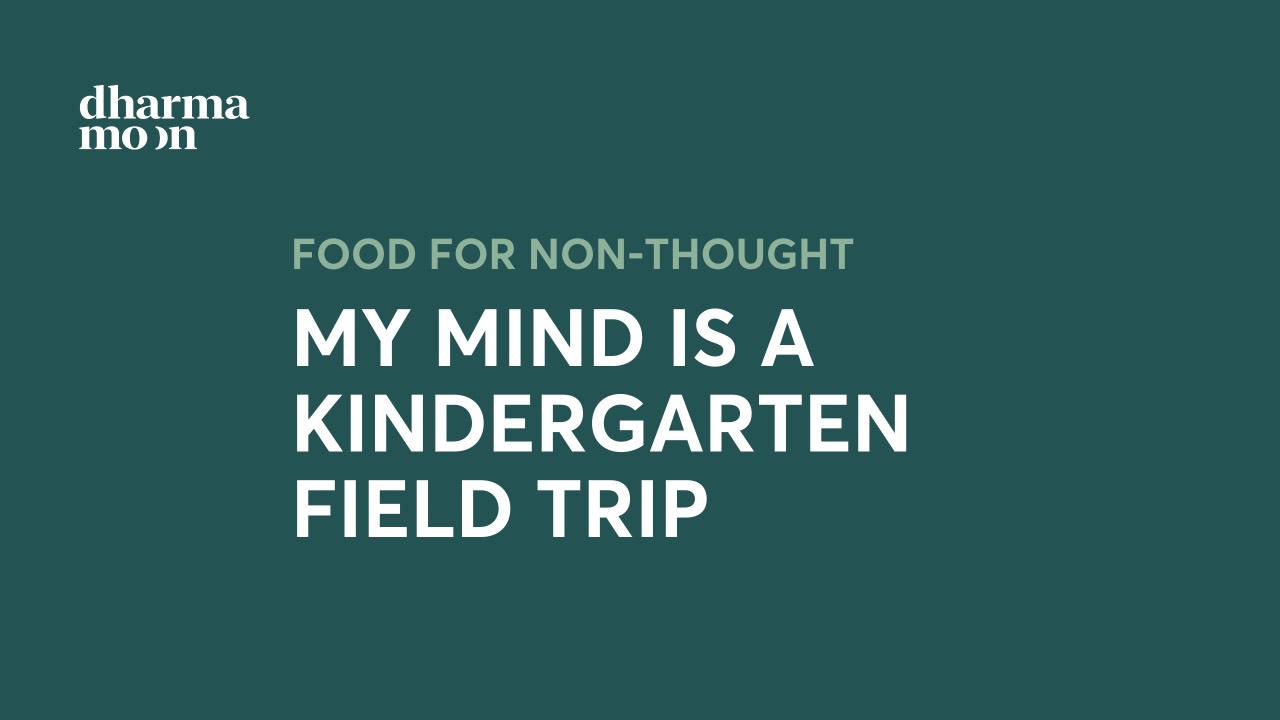My Mind Is a Kindergarten Field Trip

Written by René Fay
For me, meditation practice often feels like being responsible for a kindergarten class on a field trip to a science museum. My mind is curious, excitable, and easily distracted. And I’m training to be the ever-patient, caring adult in the room, guiding my distractible thought-children back to the present moment with gentleness and love.
In mindfulness practice, I watch my attention dart from one exhibit to another — reliving some mortifying thing I did in the past or daydreaming about some magical adventure I want to have — and before I know it, I’ve strayed far from the exhibit at hand: the present moment. Instead of scolding or shaming this curious little mind-child, I gently say “thinking,” which translates to, “I get why that’s alluring, it’s just not the assignment right now. Let’s go back to the breath. That’s what we’re exploring at this moment.” And without drama or hysterics, I return.
Sometimes it’s not just distraction but overwhelm. A big emotion — grief, fear, shame — erupts like a full-blown meltdown in the middle of the museum. The child is overstimulated: too much noise, too many colors, too many feelings. This is where my practice is especially handy. I don’t try to push it away or pretend it’s not happening. I sit beside the crying child and say, “I know this is too much. I know you’re tired and don’t want to be here anymore. I know you don’t want this to be reality and just want to be home, comfortable, eating snacks. But the bus doesn’t come until 2, and I can’t change that. I’m so sorry.” I offer what comfort I can — not a fix, but a hand to hold.
When working with a student recently around difficult emotions arising alongside the deepening of a practice, I shared this analogy. The world is extra heavy right now, which seems to be a common experience among everyone I engage with, no matter who they are or how they are engaging with it.
This student and I were specifically discussing the practice of Tonglen. In Tonglen, we touch the fabric of suffering — ours, others’, and/or the collective. We don’t deny it. We acknowledge it. And while we know we may not be able to fix the problem, we can — if only momentarily, symbolically — hope for whatever might ease that suffering.
So, whether Tonglen or mindfulness or metta or anything else: we can see the scattered children. Smile at their shenanigans. And gently bring them back to the exhibit in front of us: this wild experience of being alive — here, now, in this museum, in this body, in this moment.
